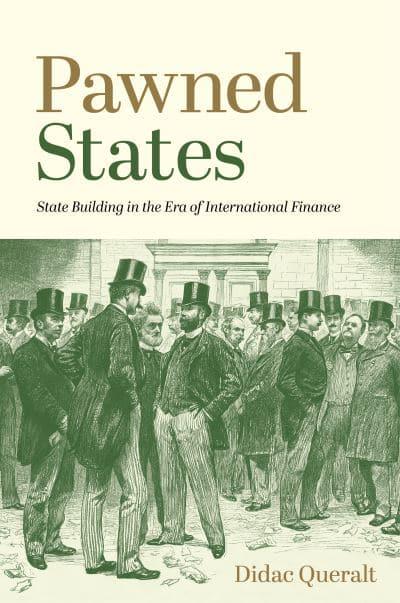Pawned states
state building in the era of international finance
- ISBN: 9780691231525
- Editorial: Princeton University Press
- Fecha de la edición: 2022
- Lugar de la edición: Princeton (NJ). Estados Unidos de Norteamérica
- Encuadernación: Rústica
- Medidas: 24 cm
- Nº Pág.: 368
- Idiomas: Inglés

How foreign lending weakens emerging nations
In the nineteenth century, many developing countries turned to the credit houses of Europe for sovereign loans to balance their books and weather major fiscal shocks such as war. This reliance on external public finance offered emerging nations endless opportunities to overcome barriers to growth, but it also enabled rulers to bypass critical stages in institution building and political development. Pawned States reveals how easy access to foreign lending at early stages of state building has led to chronic fiscal instability and weakened state capacity in the developing world.
Drawing on a wealth of original data to document the rise of cheap overseas credit between 1816 and 1913, Didac Queralt shows how countries in the global periphery obtained these loans by agreeing to "extreme conditionality," which empowered international investors to take control of local revenue sources in cases of default, and how foreclosure eroded a country's tax base and caused lasting fiscal disequilibrium. Queralt goes on to combine quantitative analysis of tax performance between 1816 and 2005 with qualitative historical analysis in Latin America, Asia, Africa, and the Middle East, illustrating how overreliance on external capital by local leaders distorts their incentives to expand tax capacity, articulate power-sharing institutions, and strengthen bureaucratic apparatus.
Panoramic in scope, Pawned States sheds needed light on how early and easy access to external finance pushes developing nations into trajectories characterized by fragile fiscal institutions and autocratic politics.
1 Introduction
2 A Political Economy of External Finance
PART I. THE RISE OF GLOBAL FINANCE
3 The Globalization of Public Credit
4 Extreme Conditionality in International Lending
5 Debt Traps and Foreign Financial Control
PART II. THE CONSEQUENCES OF GLOBAL FINANCE FOR STATE BUILDING
6 War Finance
7 War, Credit, and Fiscal Capacity
8 Mechanisms of Persistence
9 State Building Trajectories
10 Conclusion







